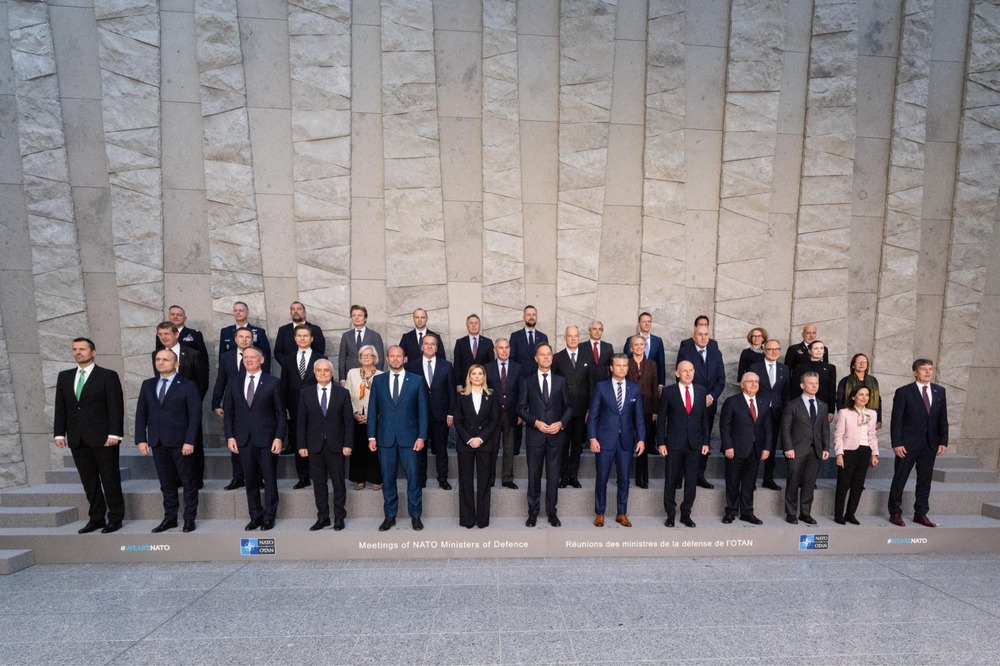site.btaMinister Zapryanov in Brussels: Our Main Priority Is Increasing Defence Budget, Implementing Modernization Projects


Bulgaria's Defence Minister Atanas Zapryanov Wednesday said that "our main priority is increasing the defence budget and implementing ongoing modernization projects." He attended a meeting of NATO Ministers of Defence in Brussels, where he stressed the need to boost defence investments and to fulfill the commitments made in The Hague, the Ministry of Defence press service said.
Zapryanov recalled that Bulgaria has received a positive response for financial assistance in the form of a loan under the Security Action for Europe (SAFE) instrument, which will be used to fund projects related to building NATO’s deterrence and defence capabilities.
He also addressed the need to counter Russian unmanned aerial systems, noting that while several allies possess counter-drone systems, the Alliance’s response should be unconventional and innovative.
“Bulgaria is seriously interested in making use of all opportunities provided by NATO, the EU, and the bilateral basis for accelerating the integration of innovative technologies into our Armed Forces,” Zapryanov said.
The Minister noted that peace and security in the Western Balkans, as well as strengthening deterrence and defence in the Black Sea region, are of national interest for Bulgaria. “These regions face the same security risks and threats as other strategic areas of the Alliance, and we have always supported maintaining NATO’s focus on them,” he said.
The defence ministers discussed progress in meeting capability targets and enhancing NATO’s deterrence and defence capabilities, and reviewed missions and operations in the context of the decisions taken at the Hague Summit. They also examined the implementation of defence spending commitments, the capacity of the defence industry, recent airspace violations over allied territories, and enhanced vigilance measures under Eastern Shield.
During an informal meeting of the NATO–Ukraine Council, attended by Ukraine’s Defence Minister Denys Shmyhal and EU High Representative for Foreign Affairs and Security Policy Kaja Kallas, the ministers discussed long-term political and practical support for Ukraine.
The debate on building the defence capabilities and readiness of EU Member States continued during a working dinner of the EU Foreign Affairs Council (Defence). Discussions once again focused on protecting the EU’s eastern borders and airspace.
“Bulgaria plans to invest significant funds through the SAFE mechanism in air and missile defence capabilities, as well as drone and anti-drone systems,” Zapryanov said. The implementation of the EU’s new initiative to protect the eastern flank is expected to form part of the defence readiness roadmap that will be presented by the European Commission in the coming days. “The EU’s efforts should contribute to fulfilling NATO’s defence plans and capability objectives across the full spectrum of operations in all domains,” the Minister added.
He also advocated for increased EU budget funding for the development of defence capabilities, including expanding the capacity of the European defence industry.
During his visit to Brussels, Zapryanov held a tete-a-tete meeting with his Ukrainian counterpart, Denys Shmyhal, where bilateral defence cooperation was discussed.
At a trilateral meeting with the defence ministers of Turkiye and Romania, topics of mutual interest related to regional cooperation in the Black Sea region were addressed. Zapryanov also took part in a meeting of the Ukraine Defence Contact Group.
At The Hague summit, NATO member states agreed to raise defence spending to 5% of GDP over the next decade. Of this, 3.5% will go toward core defence expenditures, and 1.5% toward defence- and security-related investments, including infrastructure and industry. The current NATO target for defence spending stands at 2% of GDP.
/IV/
news.modal.header
news.modal.text